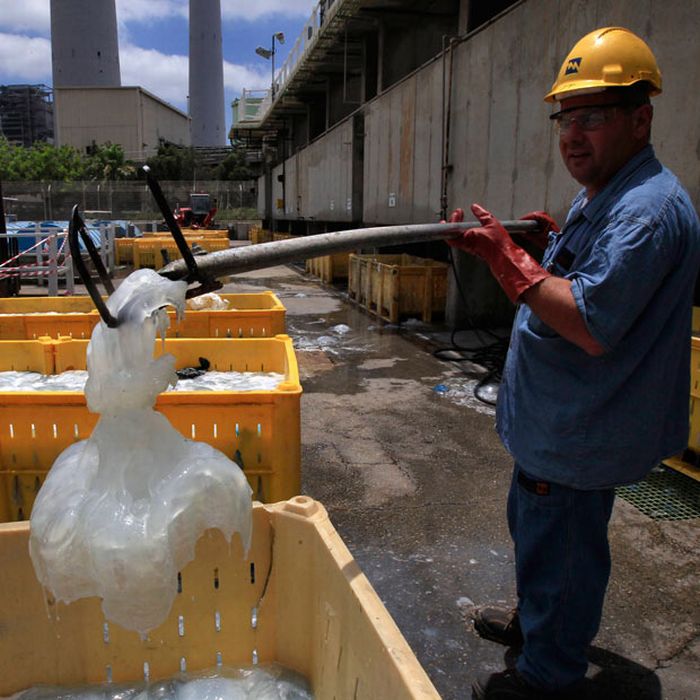|
|
Jellyfish Clog Water Supply, Coal-fired Power Station Orot Rabin, Hadera, Israel
|
Traditional processing methods, carried out by a Jellyfish Master, involve a 20 to 40 day multi-phase procedure in which after removing the gonads and mucous membranes, the umbrella and oral arms are treated with a mixture of table salt and alum, and compressed. Processing reduces liquefaction, off-odors and the growth of spoilage organisms, and makes the jellyfish drier and more acidic, producing a "crunchy and crispy texture." Jellyfish prepared this way retain 7-10% of their original weight, and the processed product contains approximately 94% water and 6% protein. Freshly processed jellyfish has a white, creamy color and turns yellow or brown during prolonged storage.
In China, processed jellyfish are desalted by soaking in water overnight and eaten cooked or raw. The dish is often served shredded with a dressing of oil, soy sauce, vinegar and sugar, or as a salad with vegetables. In Japan, cured jellyfish are rinsed, cut into strips and served with vinegar as an appetizer. Desalted, ready-to-eat products are also available.
Fisheries have begun harvesting the American cannonball jellyfish, Stomolophus meleagris, along the southern Atlantic coast of the United States and in the Gulf of Mexico for export to Asia.
|
|









